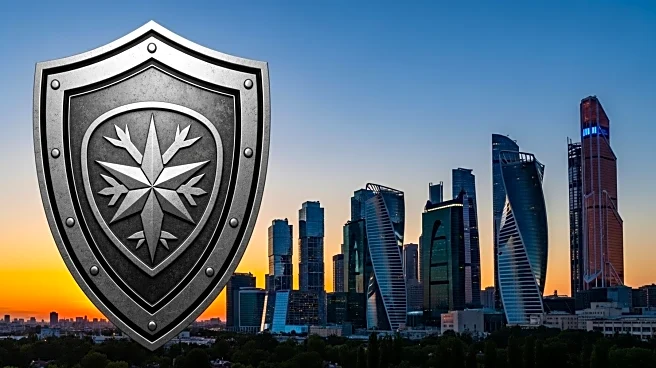What's Happening?
Chicago Mayor Brandon Johnson has signed an executive order outlining the city's strategy to resist President Trump's planned immigration crackdown. The order directs city agencies and law enforcement to refrain from collaborating with federal agents on immigration enforcement and urges federal officers to identify themselves and use body cameras. The move comes as the Trump administration prepares for a major immigration enforcement operation in Chicago, potentially involving militarized forces. The order also calls for legal and legislative actions to protect the rights of Chicagoans and demands that Trump halt the deployment of military forces for immigration enforcement.
Why It's Important?
The executive order represents a significant stance by a major U.S. city against federal immigration policies, highlighting tensions between local and federal authorities. Chicago's resistance to the crackdown underscores the broader conflict over immigration enforcement and the rights of cities to protect their residents. The situation raises questions about the balance of power between federal and local governments and the legal implications of deploying military forces for domestic law enforcement. The outcome of this conflict could have far-reaching implications for immigration policy and civil liberties in the U.S.
What's Next?
As the Trump administration moves forward with its plans, Chicago may face legal challenges and potential federal pushback. The city's actions could inspire other cities to adopt similar measures, leading to a broader movement against federal immigration enforcement. The situation may also prompt discussions about the role of local governments in shaping immigration policy and protecting residents' rights. Ongoing legal battles and public protests are likely as stakeholders navigate the complex landscape of immigration enforcement.
Beyond the Headlines
Chicago's resistance to federal immigration enforcement highlights deeper issues of governance, civil rights, and community safety. The situation reflects broader societal debates about the role of government in protecting vulnerable populations and the ethical considerations of immigration policy. The actions taken by Chicago may serve as a catalyst for national conversations about the future of immigration enforcement and the protection of civil liberties.








